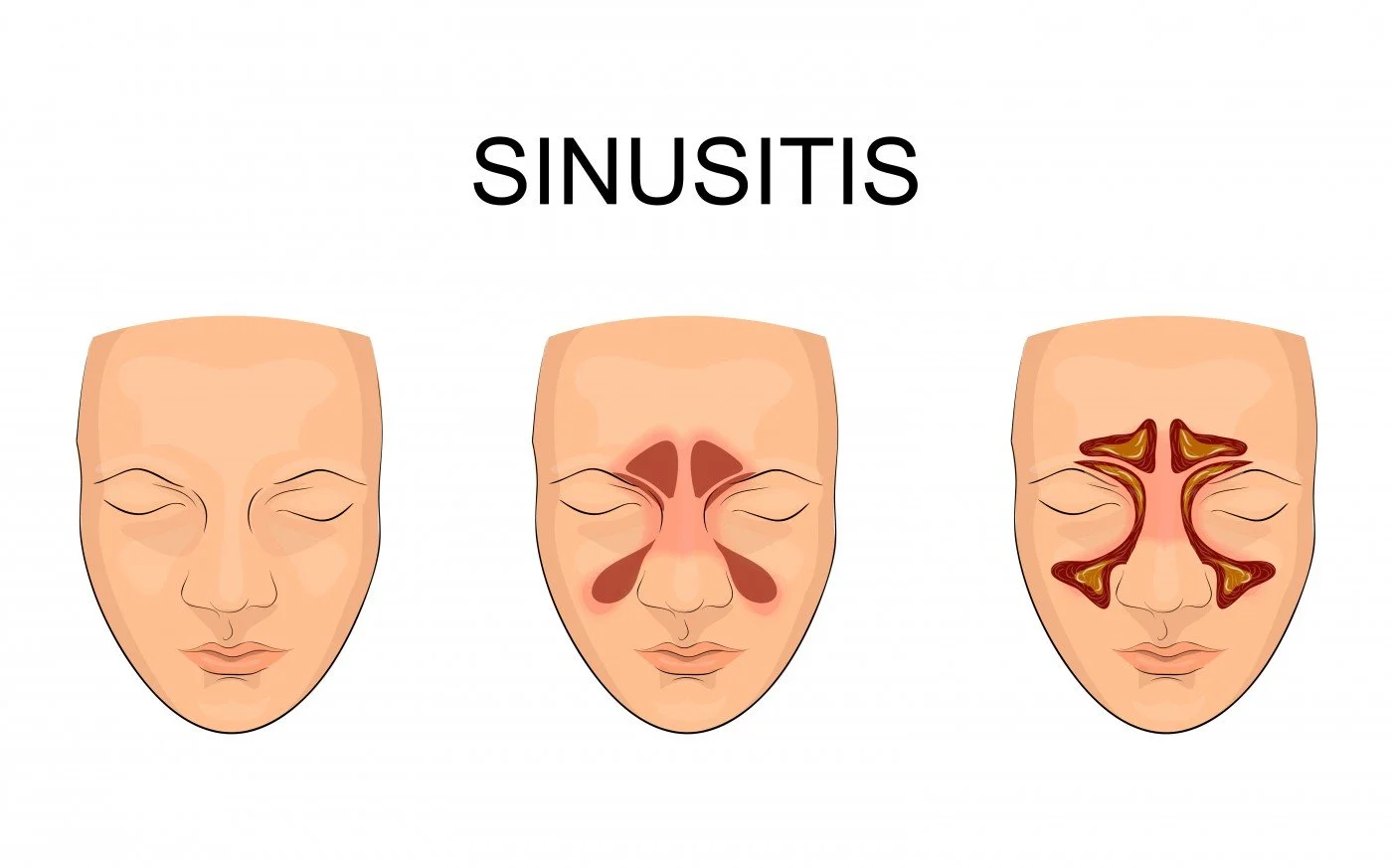Acupuncture for Sinus Issues
Your sinuses are four connected spaces in your skull, found behind your forehead, eyes, nose, and cheeks. They produce mucus that drains directly into your nose and through it, helping keep bacteria, dirt, and other irritants out.
Generally, your sinuses are empty except for air that moves through the channels linking them. But allergies or a cold can block them up. Certain pollutants, like dust or smoke, and nasal growths called polyps can also cause blockages.
If your sinuses are blocked, you might feel like there’s pressure building up in your face. You might also feel congested and develop a headache. While over-the-counter decongestants can provide some short-term relief, they aren’t great for long-term use.
If you want to try a more natural route or have a recurring sinus issues acupuncture may help.
How does it work?
In traditional Chinese medicine (TCM), your health depends on the flow of qi (energy) in your body. This energy travels along invisible pathways, known as meridians. These are found throughout your body.
Qi is believed to help keep your body in balance and promote its natural ability to heal itself. A blocked or disrupted flow of qi can negatively impact physical and emotional well-being.
During an acupuncture session, very thin needles are inserted into your skin to stimulate certain points, based on the symptoms you’re addressing. This stimulation, according to TCM, helps to clear blockages along your meridians, restoring the flow of qi through your body.
People use acupuncture to help with a range of sinus issues, including headaches, pressure, pain, and nasal congestion.
Which points target the sinuses?
There are hundreds of acupuncture points across your body. If you try acupuncture, the acupuncturist will take a detailed history of your symptoms before deciding what acupuncture points to use.
Keep in mind that certain points are linked to multiple uses, and not all practitioners use the same points.
Some common acupuncture points used to treat sinus issues or allergic rhinitis include:
Bitong (EM7)
Yingxiang (LI20)
Hegu (LI4)
Quchi (LI11)
Juliao (ST3)
Yangbai (GB14)
Fenglong (ST40)
Shangxing (GV23)
Sibai (ST2)
Zanzhu (BI2)
What does the research say?
There aren’t many studies about the effects of acupuncture on sinus problems. However, there are several studies about the benefits of acupuncture for allergic rhinitis.
Allergic rhinitis involves inflammation of the mucus membranes in your nose in response to allergens, which can cause a range of sinus-related issues, including:
congestion
runny nose
headache
pressure in your face, around your sinuses
postnasal drip
According to a 2014 reviewTrusted Source of multiple randomized controlled trials, acupuncture may provide some relief from allergy symptoms, though more studies are needed. Another 2014 reviewTrusted Source made similar conclusions.
A 2015 reviewTrusted Source additionally found that acupuncture may have some advantages over antihistamines.
THE VERDICT
There’s good evidence that acupuncture can help to manage allergic rhinitis, which causes a range of sinus-related symptoms.
Is it safe to try?
When performed by a trained and experienced acupuncturist, acupuncture is generally safe, according to the AFPA (Acupuncture Foundation Professional Association)
How can I try acupuncture?
Feel free to contact Elaine via email, call/text/whatsapp or facebook messanger.
via healthline.com

